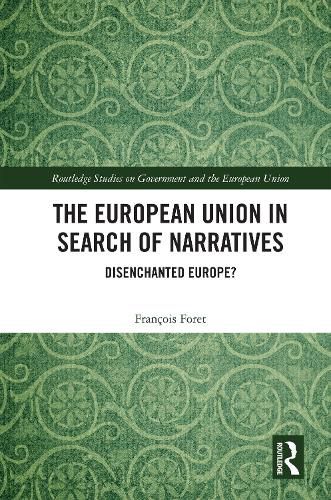Readings Newsletter
Become a Readings Member to make your shopping experience even easier.
Sign in or sign up for free!
You’re not far away from qualifying for FREE standard shipping within Australia
You’ve qualified for FREE standard shipping within Australia
The cart is loading…






This book examines the legitimization of the European Union through the development and rapid rotation of narratives aiming to convey its identity and purpose.
Utilizing literature and data across a wide range of interdisciplinary areas rarely studied together, the book argues that three narratives have been dominant over the last 20 years: 'Europe of rights', 'Europe of values' and a 'European way of life'. It presents both theoretical and empirical research on the transformation of political domination, collective identities and EU legitimization, and analyses various 'crises' linked to socio-economic, security, identity and normative issues, such as terrorism and radicalization, pandemics, and morality politics. It finds that European narratives express lower ambitions on charismatic community-building, are constantly expanding to new domains, and are increasingly framed as being in a situation of existential threat, which may increase democratic tensions and give rise to a populist backlash.
This book will be of interest to students and scholars of European integration, European Parliament, legitimization studies, political communication, and to comparative politics and political sociology.
$9.00 standard shipping within Australia
FREE standard shipping within Australia for orders over $100.00
Express & International shipping calculated at checkout
This book examines the legitimization of the European Union through the development and rapid rotation of narratives aiming to convey its identity and purpose.
Utilizing literature and data across a wide range of interdisciplinary areas rarely studied together, the book argues that three narratives have been dominant over the last 20 years: 'Europe of rights', 'Europe of values' and a 'European way of life'. It presents both theoretical and empirical research on the transformation of political domination, collective identities and EU legitimization, and analyses various 'crises' linked to socio-economic, security, identity and normative issues, such as terrorism and radicalization, pandemics, and morality politics. It finds that European narratives express lower ambitions on charismatic community-building, are constantly expanding to new domains, and are increasingly framed as being in a situation of existential threat, which may increase democratic tensions and give rise to a populist backlash.
This book will be of interest to students and scholars of European integration, European Parliament, legitimization studies, political communication, and to comparative politics and political sociology.